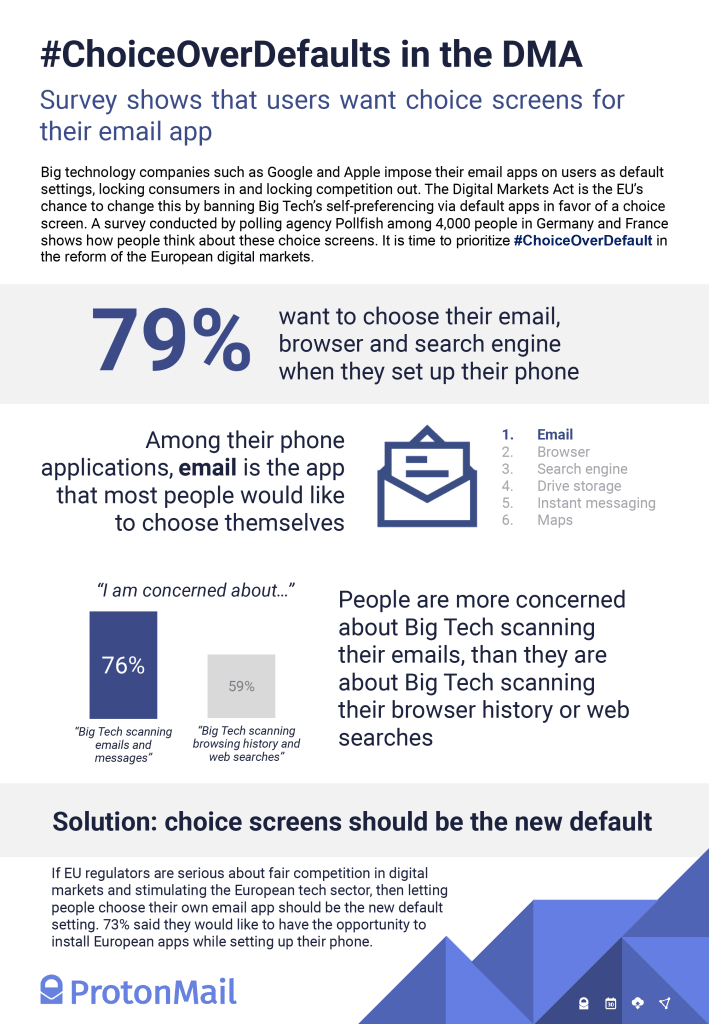Il Digital Markets Act (DMA) è l’occasione dell’UE per vietare l’autopreferenziazione dei Big Tech tramite app predefinite a favore di una schermata di scelta durante la configurazione di un nuovo dispositivo. Permettendoti di scegliere le app di base come l’email sul tuo dispositivo, gli emendamenti sui predefiniti nel DMA possono fermare i Big Tech dal confinare i consumatori e escludere la concorrenza.
In collaborazione con Pollfish, abbiamo intervistato 4.000 persone in Germania e Francia. I risultati hanno mostrato che le persone desiderano prepotentemente la possibilità di scelta quando si tratta di decidere quali app utilizzare sul loro telefono.
 (nuova finestra)
(nuova finestra)Quando viene presentata la scelta, le persone optano per la privacy. Adottare questi emendamenti al DMA e rendere la scelta il nuovo standard è un altro passo verso un internet più privato per tutti.